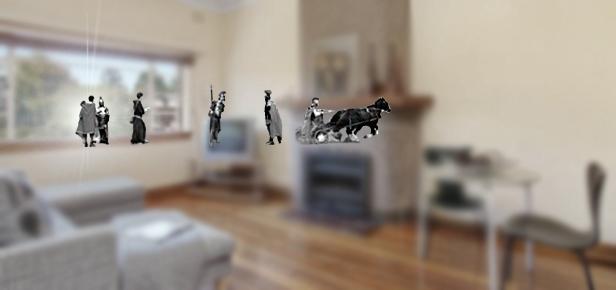
Now that we've got your attention, let's talk about the uncomfortable topic and how it relates to Charles Bonnet syndrome (CBS).
The word 'hallucination' has come to be associated in society with something significantly wrong in the mind. When a person experiences a visual hallucination ('seeing things that are not really there'), there are grave fears for mental illness, delirium or dementia. In the field of psychiatry, hallucinations are seen as a primary indicator that something is not quite right and that perhaps the person has lost a sense of contact with reality.

Roman soldiers and chariot hovering mid-air in a vision-impaired person
When the term 'visual hallucination' is raised, it conjures up a fearful prognosis for oneself or a loved one. The reason is simple: people tend to only know hallucinations as signs of illicit drug use or - far more commonly - a defective mind. That is, something has gone awry in the brain.
So when a vision-impaired person begins to see things in their immediate environment that others cannot see, then it's quite understandable that they start to question their own experiences and what it means for them. For example, seeing orange elephants floating across the room every day before dusk is seen as just plain weird. It's also very concerning such that many arrive at the same thought: "First I lost my vision, am I now also losing my mind?"
With many types of clinical conditions, the person often believes - or has a strong suspicion - that what they see is genuinely real. This is known as a true hallucination. However for CBS, within the first couple of weeks of their visions, the vast majority have concluded that what they see - even if incredibly life-like - is not (or cannot be) real. This ability to quickly work out that what they 'see' is actually the eyes (or the brain) playing tricks on them, shows their thinking remains sharp and sound. This scenario, which is so often played out for someone living with CBS, sets them apart from those in the community experiencing true hallucinations.
True visual hallucinations require two features:
With CBS, point one is definitely present but typically point two is not. CBS is not associated with any form of mental illness, dementia or delirium. It is rather a most unusual side effect of the brain's response to vision loss.
Page 8 of 61